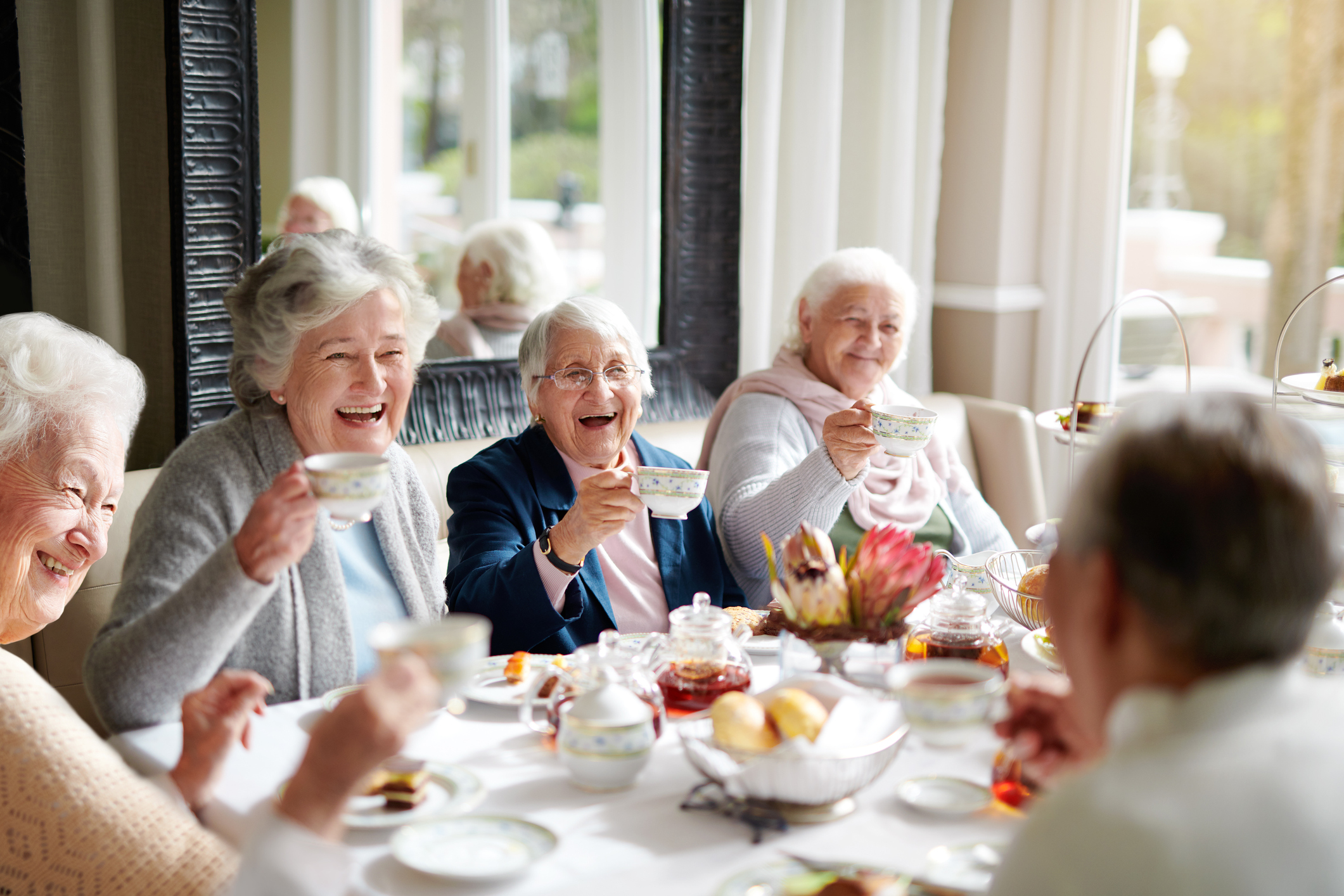It’s easy to understand the benefits of staying physically active into old age, but should you place the same importance on staying socially active?
Truth is, staying active as you get older is crucial to maintaining a high quality of life – whether that be social or physical activity. Several studies indicate that there is a correlation between social relationships and health, and that social isolation is a major risk factor for mortality and morbidity. That means if you’re socially isolated, you are statistically more likely to get sick or die.
It’s a pretty serious issue that goes unnoticed by many. Many of us grew up surrounded by people: brothers, sisters, parents, grandparents, classmates, teachers. As you get older, things tend to slow down on your social calendar. No longer are you seeing coworkers throughout the week, and your children have moved out of the house and maybe even out of town. According to a report by the U.S. Department of Health and Human Services, about 28 percent of older adults in the United States, or 13.8 million people, live alone. Many seniors simply have fewer social interactions built into their day-to-day lives.
Just because someone lives along doesn’t mean that they experience loneliness, and sometimes someone can be lonely even if they are surrounded by friends and family every day. Scientists are just now working to figure out the relationship between being alone and loneliness. But here are some ways that scientists believe seniors can benefit by staying socially active:
Cognitive Health
Scientists suspect that maintaining friendships into old age helps prevent depression, dementia, and even Alzheimer’s, though there isn’t a clear connection to understand why that’s the case. According to the Alzheimer’s Association, the connection between social and cognitive health may be because social and mental stimulation strengthens connections between nerve cells in the brain.
A great way to stay socially and mentally agile is to organize a weekly card game or even a book club. A weekly game of bridge can do wonders to stay in touch with friends while also keeping your mind sharp, and a book club has the added benefit of keeping your mind occupied in between club meetings.
Physical Health
It turns out that staying socially active actually means that you’re more likely to be physically active. It makes sense – if you’re connected with others, you’re more likely to get out of the house to go to your grandchild’s baseball game or to go on a walk in the park. Staying physically active also helps keep your heart healthy, which in turn protects an organ susceptible to disease in old age.
In addition, a Carnegie Mellon University study has shown that the more a person is socially active, the lower likelihood of them getting sick.
Mental Health
If you’ve ever seen movies or read books about someone being stranded on an island (i.e. Tom Hanks in Cast Away), oftentimes the greatest fear is not that the person will starve but that they will go crazy from being alone. In fact, if you’ve seen Cast Away, you know that Tom Hanks befriends a volleyball named Wilson. Though it sounds ridiculous, these types of coping mechanisms are totally understandable when dealing with extreme loneliness, which can be crippling.
The connection between staying social activity and mentally healthy has been known for some time. Loneliness and isolation often go hand-in-hand with depression and anxiety. Friendships can help you feel like you’re not alone in life and that someone understands you. This simple act of connection with others can prevent depression.
Friendships Matter
At the end of the day, whether for cognitive, physical, or mental health, maintaining friendships and connecting with others regularly is clearly beneficial for increasing your longevity as well as providing you a higher quality of life as you age.
Maybe you’ve always dreamed of hosting friends over at your house but don’t have the ability to get the house ready or prepare food. Our Care Professionals are trained to help you so that you can enjoy a rich social life even in old age. Go ahead and schedule that bridge game with your three closest friends. A Care Professional can help you make that dream a reality.
